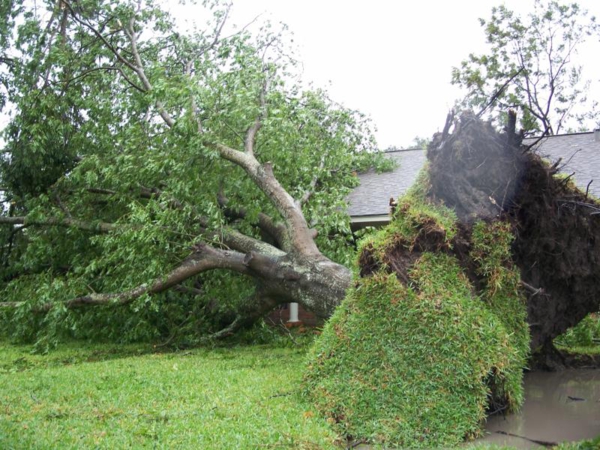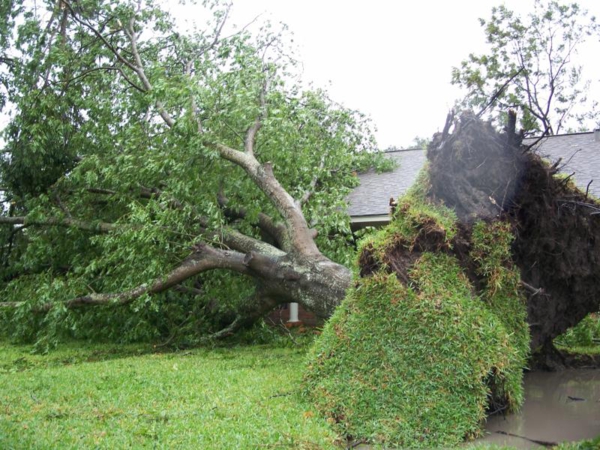Disputes over trees cause anger and conflict between neighbors every day. Sometimes, branches of a tree growing on one individual’s property hang over another person’s property, producing debris for the second individual. In other cases, roots grow into an adjacent property, causing damage to fences and landscaping. Still other times, an old tree threatens to fall, at which point it will crush a portion of a neighbor’s house. These and other issues have spurred countless neighbors to take matters into their own hands, trimming branches and even cutting down trees on other people’s property.

It’s often unclear the extent to which a person can address issues involving his or her neighbor’s tree. This can lead to lawsuits in which one person seeks compensation from the other for tree damage. Below, we’ll explain how the legal system tends to approach liability and compensation in these matters.
When A Trim Causes Injury To A Tree On Your Property
Imagine the following scenario: a tree is growing on your property and several of its branches overhang your neighbor’s yard. Leaves drop from the overhanging branches onto his lawn, forcing him to rake them each week. One day, without your permission, your neighbor cuts the branches that are hanging over his property. Do you have a right to compensation?
Courts usually examine whether actions such as your neighbor’s have caused lasting damage to the tree in question. That is, did trimming the overhanging branches permanently injure your tree? If so, you are normally due compensatory damages. If not, a judge is unlikely to hold your neighbor liable.
This introduces another question: how do you demonstrate that actions taken by your neighbor to resolve a conflict involving a tree on your property present grounds for legal redress? As you’ll see below, much depends on whether the tree poses a danger.
Demonstrating Your Right To Recompense
You’ll note from the above that the law offers a degree of protection for trees as property. While your neighbor can trim branches that hang over a shared property line, he cannot, under normal circumstances, have the tree removed without your permission. He lacks the legal right.
However, the law takes a considerably different approach for cases in which a tree threatens to cause damage to a neighbor’s property. An example would be a large and very old tree that shows signs of potentially falling onto an individual’s house. In such a case, the individual can take measures, including removing the tree, to protect his home. The person who owns the tree would be unlikely to receive compensation for the loss.
To demonstrate your right to receive compensation, you must first prove your tree posed no danger to a neighbor’s property prior to being damaged or removed. This is in addition to showing the tree sustained permanent injury as a result of your neighbor’s actions.
Calculating The Amount Of Compensation Due
Let’s suppose you have successfully demonstrated to the court that you should receive remuneration for damage sustained by your tree. The question now turns to the amount you should receive.
Your recovery of monetary damages will by influenced by a number of factors. For example, a court is likely to award compensation to you for expenses related to the removal of your damaged tree. This can include the money you spend to repair your lawn or yard following the removal. If you are forced to take time away from your job, and that time results in lost wages, you may be awarded partial or full compensation for it, too.
There are cases in which removing a tree that has been severely damaged is not an option. An example would be a tree with roots that have grown in such a way that removing them might cause damage to a house’s plumbing. Or, it may be possible to remove the tree, but it cannot be replaced. In such cases, the court may award the homeowner with damages reflecting a decline in the value of the property.
Legal issues involving tree damage can be surprisingly complex. Even if you intend to pursue such a matter in small claims court, it’s a good idea to consult an attorney beforehand.
The author blogs about a wide range of topics as well as legal issues. Be sure to check out the other related topics on this blog.
A Legal Perspective On Neighbors And Disputes About Tree Damage

